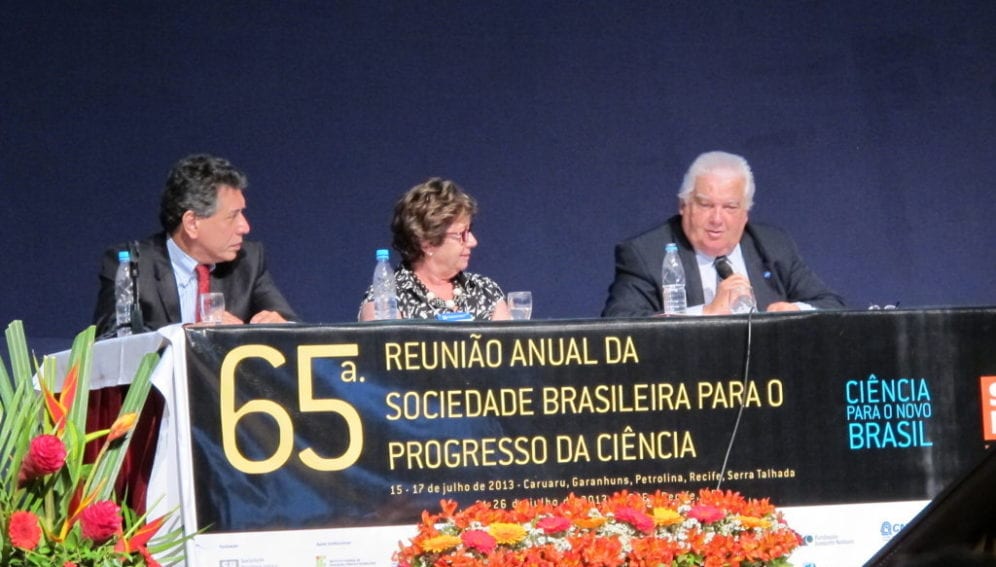By: Luisa Massarani
Send to a friend
The details you provide on this page will not be used to send unsolicited email, and will not be sold to a 3rd party. See privacy policy.
[RECIFE] Brazil's investment in science has reached an all-time high, with the science ministry's budget increasing from 8.6 billion reals (about US$3.8 billion) in 2012 to 12.7 billion reals (around US$5.6 billion) this year, according to science minister Marco Antonio Raupp.
Raupp made the announcement last week (22 July) at the 65th Annual Meeting of the Brazilian Association for the Advancement of Science, in Recife.
During much of the last decade, under President Luiz Inácio Lula da Silva, the science budget allocated through Brazil's Ministry of Science, Technology and Innovation substantially rose.
“It is not enough to generate knowledge, it is important to make such knowledge available for the productive sector.”
Marco Antonio Raupp
In 2002, it was 1.3 billion reals (about US$575 million) — near the end of Lula's mandate, in 2010, it reached 7.5 billion reals (just over US$3.3 billion).
But in 2011, the budget dipped to 7.4 billion increase (nearly US$3.3 billion).
Ennio Candotti, vice-president of the Brazilian Association for the Advancement of Science, welcomed the announcement of the budget rise.
But he warned that the budget presented during the conference included funds that are not directly for scientific research, such as money to offer low-interest loans to encourage industrial innovation.
"This money is important, but, if we look at the money targeted specifically at science, we observe that the figures are not much higher than in 2010," he tells SciDev.Net. "It is good to see the recuperation of the amount, but it is a pity that the steady increase since 2003 was interrupted."
Since Lula's time, and more so recently, the science ministry has been prioritising innovation in the industrial sector, which will receive half of the entire 2013 budget.
"It is not enough to generate knowledge, it is important to make such knowledge available for the productive sector," Raupp said at the conference.
Luana Bonone, president of the National Association of Postgraduates, says that "the emphasis given by the government to technological innovation makes sense, since Brazil needs to develop its productive sector".
But she adds that she would like to see more funding of social innovations (innovations geared towards strengthening and extending civil society) and basic science, rather than industry and applied sciences.
"The concern [within the science community] about social innovations does exist but it is not at the core of the strategic policy for the development of the country," she tells SciDev.Net. "The scientific community needs to defend basic science."
Brazil is now responsible for 2.7 per cent of world scientific production and occupies 14th place in the world ranking, according to ministry's figures. About 35,000 scientific papers were published and 14,000 theses were defended in the country in 2012.














